Ever wondered how effective are these barriers placed around the Embassies and other Federal Buildings? Researchers at The Texas A&M Transportation Institute released a footage of a truck colliding with barriers at 50mph. The cabin of the truck was destroyed, but the barrels at the rear, supposedly explosives remained relatively unscathed.
This was a simulated terrorist attack. The truck was fitted with remote control system and was driven into a steel barrier at 50mph. The 24ft wide barrier is buried 18 inches into the ground. The windshield and hood of the truck dash forward while its cab folds like an accordion. The black barrels in the vehicle’s trailer that simulated explosives, hop a few inches into the air, before the restraints got them back in their place.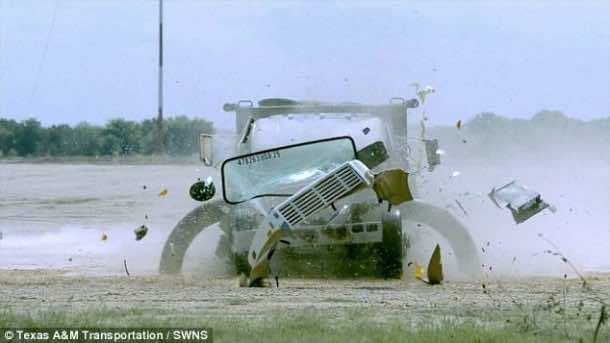
The goal was to stop the truck bed from reaching it further than one meter past the barrier, a spot that was marked by a blue pole. The goal was met as none of the truck’s bed reached that point. This test was carried out at Texas A&M Transportation Institute’s Proving Grounds Research Facility. The test was designed simulate the act of terrorists driving an explosive laden truck into the barriers. According to the Institute, ‘The goal of the test was to prevent the bed of the truck going 50 mph from passing one meter past the barrier, The bed is where a bomb might be, and that’s what the barrier is meant to keep out.’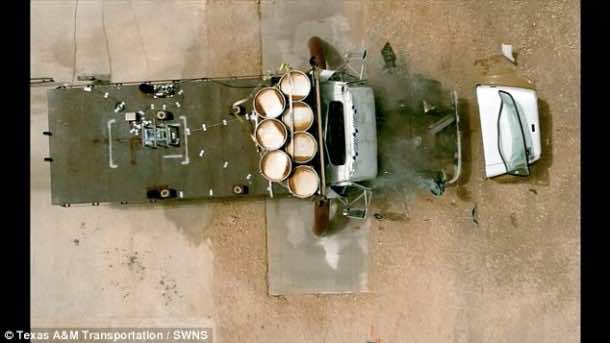
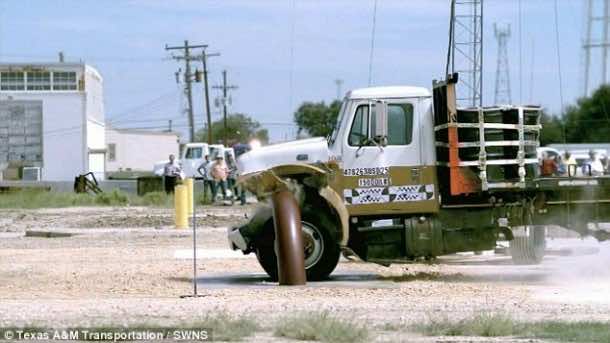
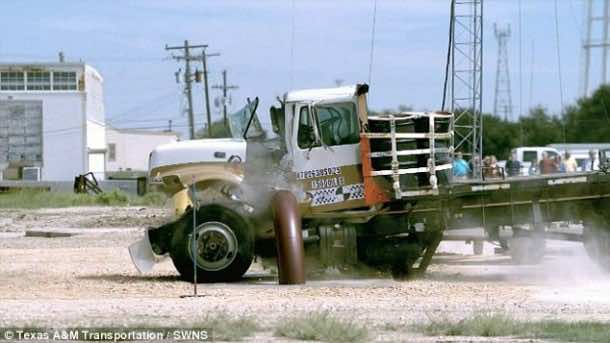
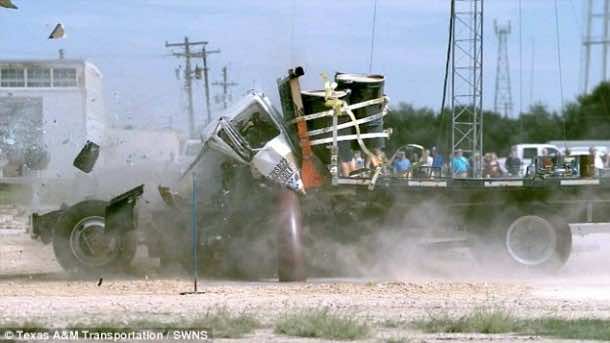
It is the part of TTi’s contract with the U.S. State Department to test different ‘perimeter security devices’ that are installed at embassies and other facilities around the world. ‘The focus is on keeping a terrorist from breaching the barrier,’ Dean Alberson with TTI’s Crashworthy Structures Program, told the Texas Tribune. This particular crash test involved a 24-foot-wide barrier buried 18 inches into the ground, he said. ‘None of the truck’s bed made it past the barrier, marking the test a success’, Alberson said.The surviving of the driver is not a primary concern in such scenarios, according to researchers.
So next time you see one of these barriers in front of a building, you can feel safer.

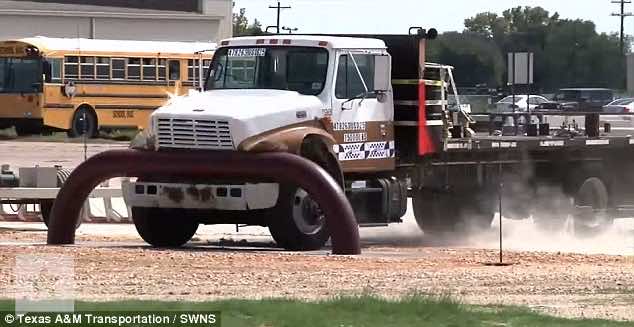

Wow! now that is what we call security.
You can clearly see the motor and trans spit out the bottom underneath the tray, which would be expected.
It looks like the test truck does not have an engine, which would have increased the impact.
Then how was the truck moving in the first place
Where is the motor, that would have made a hell of a difference
I don’t think the engine/ motor was removed?